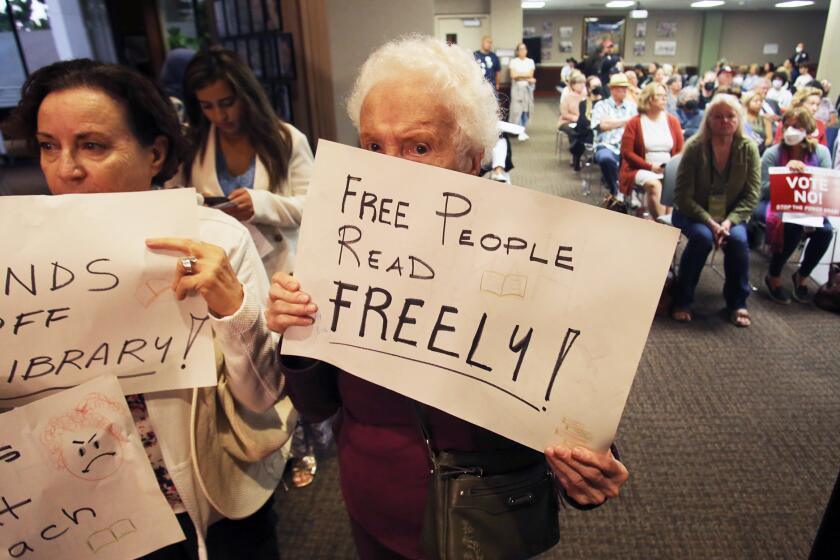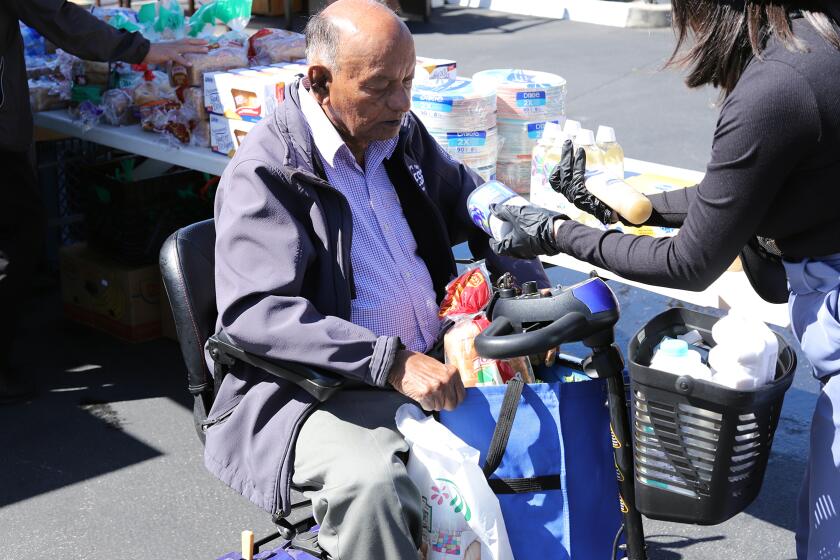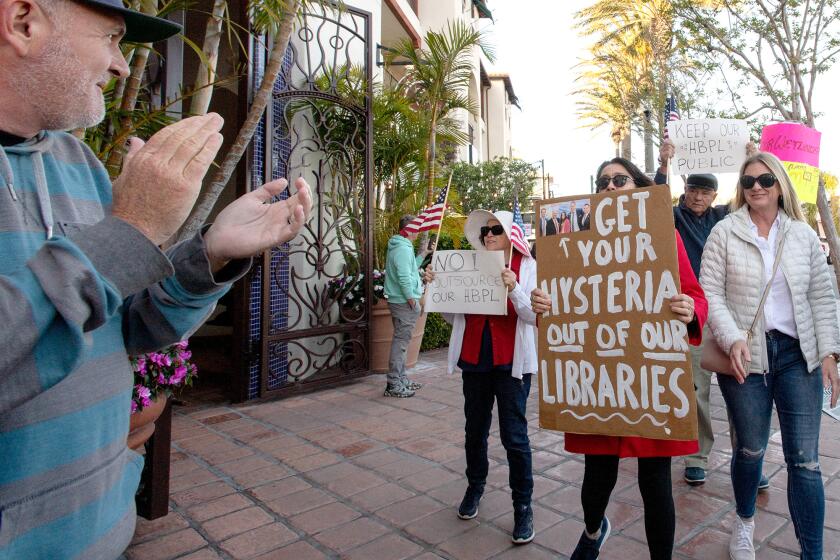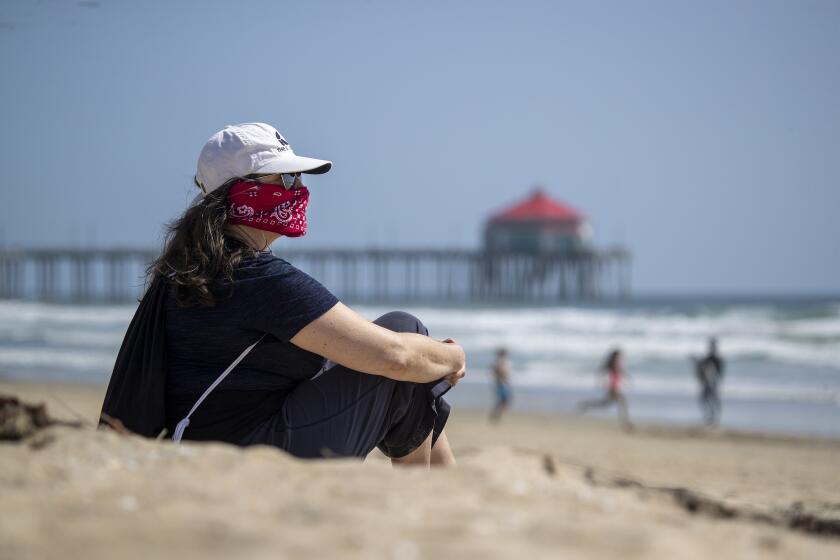City Lights: Back to the Lost Boys
Sometimes, as a reporter, you get to stand back and simply observe twists of fate. I had that opportunity last March when two of the Lost Boys of Sudan visited Huntington Beach as part of the HB Reads program. That year’s selection, “They Poured Fire on Us from the Sky,” was the memoir of three of the war-torn country’s refugees, and two of them, cousins Benson Deng and Benjamin Ajak, made a presentation at Huntington Beach High School and attended a party at former Mayor Ralph Bauer’s home in Huntington Harbour.
It doesn’t take a careful reading of “They Poured Fire” to realize how unlikely that event was. In the book, the Lost Boys — and their minder, Judy Bernstein, who accompanied them to Surf City — describe horrors that sound barely conceivable in Orange County, from walking for days without food to dodging murderous government militias. Through courage, guile and plenty of luck, the authors ended up on a plane to the United States in 2001.
It was a happy ending, but a temporary one. When Deng and Ajak spoke in Huntington, they talked about their difficulties adapting to life in America, where they had to find jobs quickly and struggle to get an education. So as the HB Reads program started again this month, with the city’s attention focused on another book and author, I contacted Bernstein to find out how they had fared in the last 11 months.
The answer turned out to be both sobering and hopeful. But first, a bit of background.
When I interviewed Deng and Ajak last year, they were living in San Diego, where they and hundreds of other Lost Boys had settled over the last decade. Deng had secured a job at a waste management company, while Ajak scraped together a living as a motivational speaker. (The book’s third author, Deng’s brother Alephonsion, didn’t accompany them to Surf City because he was pursuing a college degree and had to attend class.)
Life for the Lost Boys was tough in San Diego, they said, with some refugees being assaulted in their low-income neighborhood and many relying on friends to drive them to the doctor or connect them with employers. Still, even the well-off ones opted to stay in the neighborhood, which provided a tighter community than the suburbs.
Over the last year, much of that has changed, Bernstein said. With the job market scarcer than ever, some Lost Boys have ventured outside San Diego for better prospects. Ajak moved to Kansas several months ago and took a job at a slaughterhouse, while Alephonsion Deng does yard work and other odd jobs at an apartment complex.
“They just sort of had to go with the flow when the economy fell apart,” Bernstein said. (I e-mailed Benson Deng as well, but didn’t get a reply.)
On the other hand, it’s an exciting time for many in the Sudanese community. Southern Sudan won independence from the rest of the country in a January referendum, and refugees living in the United States were allowed to vote. On Jan. 8, Benson Deng rode with a crowd of others to Arizona, the nearest available polling spot, Bernstein said.
Before hitting the road, the San Diego group hosted a fundraiser to build a community center for the local Sudanese population. Ajak and the Dengs have also sent money to drill wells in the village where they grew up and helped pay boarding school tuition for their nephews and niece.
Meanwhile, they’re not forgotten in Surf City. LeRoy Lucian, a member of the HB Reads committee, was assigned last year to be the contact person for Bernstein and the Lost Boys, and he’s kept in touch with them ever since.
“To play some small part in their journey to tell their stories has been an incredibly fulfilling experience and something that I will cherish always,” Lucian said.
That’s part of the purpose of the HB Reads program — not just to connect readers around town, but to connect lives around the globe. The Lost Boys may have a rough road behind them and a rough one ahead. But if they pass through Surf City again, they’ll have more than one friend waiting.
City Editor MICHAEL MILLER can be reached at (714) 966-4617 or at michael.miller@latimes.com.
All the latest on Orange County from Orange County.
Get our free TimesOC newsletter.
You may occasionally receive promotional content from the Daily Pilot.



